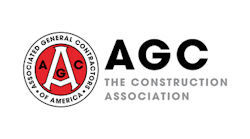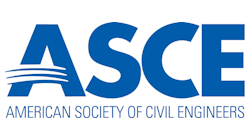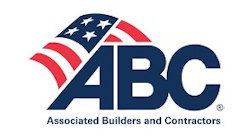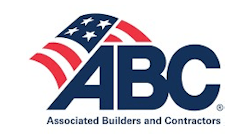Locking eyes with a Florida panther was a defining moment for Adrienne Coppock, an environmental manager employed by Preferred Materials Inc. (PMI) and Conrad Yelvington Distributors Inc., Oldcastle Materials companies. She had been studying aerial maps and panther habitat areas for a determination of potential costs, regulatory implications, and operational feasibility for a proposed project area. That same week, she spotted a Florida panther inquisitively staring at her from her neighborhood’s jogging trail. That rare encounter led to the project not moving forward. It’s all in a day’s work for Coppock, whose companies have 90 facilities: asphalt, concrete, and block plants; aggregate distribution terminals; limestone quarries; and shops within Florida, South Carolina, Georgia, Alabama, and Mississippi. PMI also does asphalt paving. Coppock describes her job as a “wonderful amalgamation of regulatory compliance and environmental stewardship.” Her duties encompass permitting, reporting, auditing, paying fees, reviewing and ensuring regulatory standards compliance, notifying agencies and neighbors, and helping regulators develop appropriate regulatory language for the construction industry. Other duties include developing, certifying, and maintaining wildlife habitat areas, training and education, participating and leading in industry initiatives, and building good working relationships within communities.
What She Does Each Day
Coppock says she spends her days integrating and maintaining the “wise and responsible use of natural resources into our industry in an environmentally sustainable, socially conscientious, legal, and economically feasible manner.” To do that successfully means spending much of her day in effective and efficient communication. She credits her company for supporting her efforts to produce better best management practices, innovative ways to improve environmental stewardship and creatively share ideas industrywide.
What Led Her to This Occupation
Serendipity led her to environmental management, Coppock says. “I have never heard anybody, myself included, say, ‘I want to be an environmental manager in the materials and construction industry when I grow up’, she says. Her biology degree from the University of Missouri–Columbia funneled her into the job. Her first ‘real job’—and the first in this line of work—was as a Missouri Department of Natural Resources environmental specialist. She says she found it rewarding to work with others who also “serendipitously” found a job protecting environmental resources. Her job path led from the regulatory side to the industry side. Broad experiences from both aspects helped her see how industry and regulators can collaborate to “wisely use invaluable resources to support current societal needs without exhausting future generational opportunities,” says Coppock. She’s come to appreciate the transition toward more transparent operations and increased communication between industry and regulators over the years and says she believes in some small way, her own occupational efforts helped support and catalyze that. Lifelong friends she’s made along the way who help guide her career and create opportunities keep her in this occupation. “Somewhere along the way, I found great meaning, purpose, and satisfaction in this line of work,” she says. “I could help support my family and make a difference in the world, not only for my generation but for future generations.”
What She Likes Best About Her Work
Her job is dynamic, with each day affording different challenges, opportunities, and milieus, says Coppock, adding she likes working with “down to earth” people who are “great to be around.” On any given day, Coppock is in the office, at an asphalt plant, a concrete plant, a block plant, an aggregate facility or a shop taking water samples or meeting with the company president. “The job never gets boring. The breadth of knowledge required to keep up with the different aspects such as land, air, water, reclamation, solid waste, and hazardous waste keeps her mind in shape and stimulated, she says.
Her Biggest Challenge
Juggling different concurrent projects in several states is Coppock’s greatest challenge. Conference calls help. The large and demanding territory led her to a ‘train, trust, and support’ approach. “Once trained, facility managers are to handle the environmental compliance at their own facility,” she says. “I provide a more supportive role pro re nata. I have to trust they will always do what they have been taught to do, which is to always do the right thing. My company’s excellent facility managers are ideal candidates for such an approach.”
Carol Brzozowski specializes in topics related to technology and construction.









